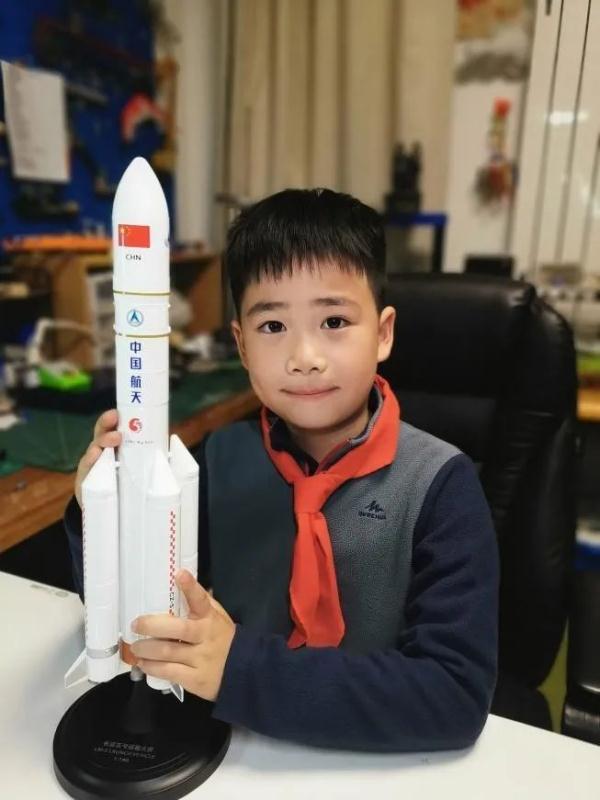'Rocket boy' shoots for the stars

Yan Hongsen with his cherished rocket model. [Photo/Zhejiang News]
Yan Hongsen, a 10-year-old boy who previously went viral online for pointing out inaccuracies in a video shown at a planetarium, is now busy working on "building" his second solid-fuel rocket, Guangming Daily reported.
Yan, dubbed "rocket boy", is a fourth-grade student at a primary school in Shaoxing, Zhejiang province. He has been a space science enthusiast since he was just four years old, and even gave his classmates a lesson on astronomy at an opening ceremony for the school.
During the summer break in 2022, Yan became an internet sensation after his father posted a video online in which the boy pointed out a rocket was wrongly named in an educational video shown to visitors at a planetarium in Lhasa, Xizang autonomous region.
The planetarium responded to Yan's feedback, immediately correcting the several mistakes in the video and thanked Yan.
In the same year, he met Zhang Yuhua, a key player in China's major achievements in space exploration. Inspired by Zhang, Yan made his determination to build his own rocket. From August 2022 to June 2023, he spent 10 months researching, studying and doing experiments, eventually creating his first rocket.
"That rocket only traveled 200 meters and then started to fall, and did not open its parachute at the highest point," Yan's father recalled. That day, Yan was excited, yet unsatisfied. He researched where he went wrong and made significant changes in his choices of materials, the engine and the flight control functions when he started to build the second rocket in October last year.
Though Yan has academic burdens, his father believed that parents should also leave more space for children to realize their dreams.
According to his father, Yan's dream is to launch a rocket every year until he graduates from the primary school; he also plans to develop a recyclable solid-propellant rocket by 2025.


